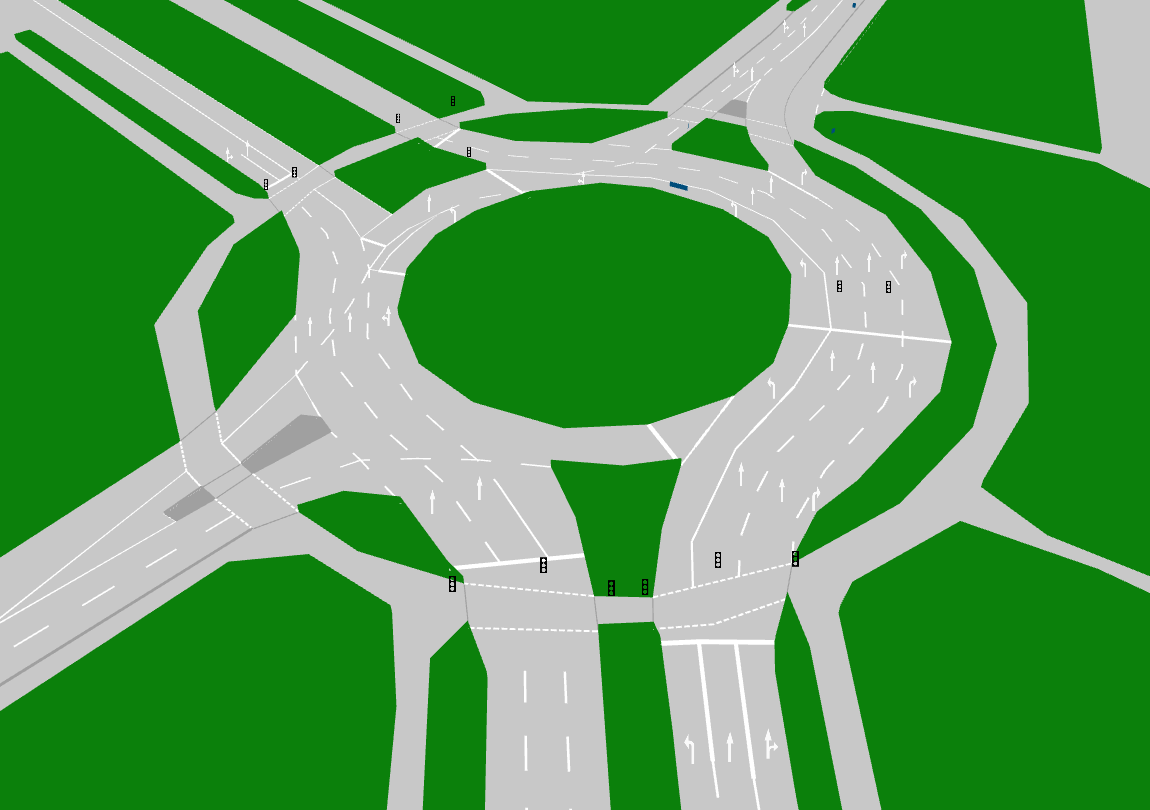Lanelet2 is a C++ library for handling map data in the context of automated driving. It is designed to utilize high-definition map data in order to efficiently handle the challenges posed to a vehicle in complex traffic scenarios. Flexibility and extensibility are some of the core principles to handle the upcoming challenges of future maps.
Features:
- 2D and 3D support
- Consistent modification: if one point is modified, all owning objects see the change
- Supports lane changes, routing through areas, etc.
- Separated routing for pedestrians, vehicles, bikes, etc.
- Many customization points to add new traffic rules, routing costs, parsers, etc.
- Simple convenience functions for common tasks when handling maps
- Accurate Projection between the lat/lon geographic world and local metric coordinates
- IO Interface for reading and writing e.g. osm data formats
- Python2 bindings for the whole C++ interface
- Boost Geometry support for all thinkable kinds of geometry calculations on map primitives
- Released under the BSD 3-Clause license
Lanelet2 is the successor of the old liblanelet that was developed in 2013. If you know Lanelet1, you might be interested in reading this.
You can find more documentation in the individual packages and in doxygen comments. Here is an overview on the most important topics:
- Here is more information on the basic primitives that make up a Lanelet2 map.
- Read here for a primer on the software architecture of lanelet2.
- There is also some documentation on the geometry calculations you can do with lanelet2 primitives.
- If you are interested in Lanelet2's projections, you will find more here.
- To get more information on how to create valid maps, see here.
Lanelet2 uses Catkin for building and is targeted towards Linux.
At least C++14 is required.
Boost(from 1.58)eigen3mrt_cmake_modules, a CMake helper librarypugixml(for lanelet2_io)boost-python/python2(for lanelet2_python)geographiclib(for lanelet2_projection)
For Ubuntu (assuming you the ROS package repository installed):
sudo apt-get install libboost-dev libeigen3-dev libgeographic-dev libpugixml-dev libpython-dev libboost-python-dev python-catkin-toolsAs usual with Catkin, you have to crate a workspace and clone all required packages there. Then you can build:
mkdir catkin_ws && cd catkin_ws && mkdir src
catkin init
cd src
git clone https://github.com/KIT-MRT/mrt_cmake_modules.git
git clone https://github.com/fzi-forschungszentrum-informatik/lanelet2.git
cd ..
catkin buildExamples and common use cases in both C++ and Python can be found here.
- lanelet2 is the meta-package for the whole lanelet2 framework
- lanelet2_core implements the basic library with all the primitives, geometry calculations and the LanletMap object
- lanelet2_io is responsible for reading and writing lanelet maps
- lanelet2_traffic_rules provides support to interpret the traffic rules encoded in a map
- lanelet2_projection for projecting maps from WGS84 (lat/lon) to local metric coordinates
- lanelet2_routing implements the routing graph for routing or reachable set or queries as well as collision checking
- lanelet2_maps provides example maps and functionality to visualize and modify them easily in JOSM
- lanelet2_python implements the python interface for lanelet2
- lanelet2_validation provides checks to ensure a valid lanelet2 map
- lanelet2_examples contains tutorials for working with Lanelet2 in C++ and Python
If you are using Lanelet2 for scientific research, we would be pleased if you would cite our publication:
@inproceedings{poggenhans2018lanelet2,
title = {Lanelet2: A High-Definition Map Framework for the Future of Automated Driving},
author = {Poggenhans, Fabian and Pauls, Jan-Hendrik and Janosovits, Johannes and Orf, Stefan and Naumann, Maximilian and Kuhnt, Florian and Mayr, Matthias},
booktitle = {Proc.\ IEEE Intell.\ Trans.\ Syst.\ Conf.},
year = {2018},
address = {Hawaii, USA},
owner = {poggenhans},
month = {November},
Url={http://www.mrt.kit.edu/z/publ/download/2018/Poggenhans2018Lanelet2.pdf}
}